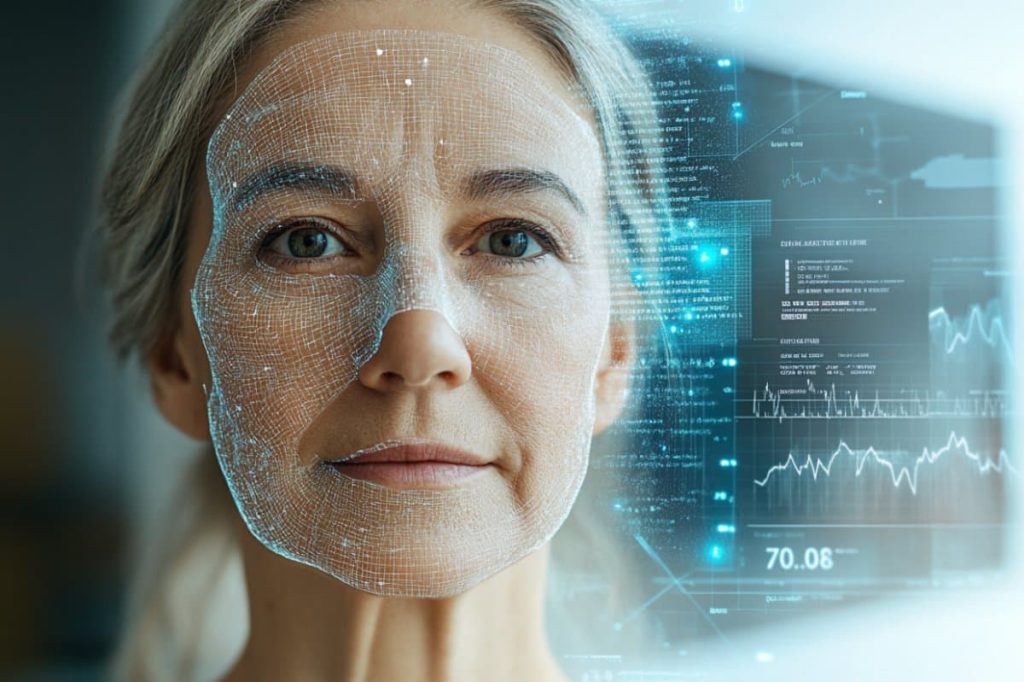The Rise of Emotion-Sensing AI in Mental Health
In an era where artificial intelligence can finish your sentences, drive your car, and recommend what show to binge-watch next, it’s no surprise that AI is now venturing into more intimate territories—your emotions. Emotion-sensing AI promises a revolution in mental health: apps that can detect sadness in your voice, chatbots that recognize when you’re overwhelmed, and algorithms that can predict depressive episodes before you consciously notice a shift. But can AI truly understand your feelings, or is it merely mimicking empathy through pattern recognition? As this technology advances, so do the ethical, psychological, and clinical questions that surround its use.
What Is Emotion-Sensing AI and How Does It Work?
Emotion-sensing AI refers to systems that detect and interpret human emotions using various data sources such as facial expressions, vocal tone, word choice, typing speed, biometric data, and even social media activity. These systems are typically trained on massive datasets using machine learning and natural language processing (NLP) to associate specific patterns with particular emotional states. For example, an AI might detect elevated voice pitch and shortened sentence structure as markers of anxiety, or facial microexpressions around the eyes and mouth as signs of sadness.
Some tools analyze passive data—like changes in smartphone usage or sleep patterns—while others require active user engagement, such as responding to questions or writing journal entries. The goal is to use this data to gauge a person’s emotional state with increasing accuracy and offer support, insight, or intervention.
Potential Benefits for Mental Health Care
If implemented with care, emotion-sensing AI could significantly improve mental health care accessibility and responsiveness. One of the most touted benefits is scalability: AI can provide 24/7 monitoring and intervention support, something human therapists cannot. This could be especially valuable in areas with a shortage of mental health professionals, long wait times, or financial barriers.
Additionally, emotion-sensing AI can serve as an early warning system. Subtle shifts in language or behavior might precede a depressive episode, relapse, or suicidal ideation. AI could flag these changes, alerting the user or a clinician in real time, allowing for timely support and possibly preventing crisis.
AI can also support therapists by analyzing session transcripts to highlight patterns or blind spots. For instance, it might reveal that a client frequently uses self-critical language, or that certain topics consistently increase distress—insights that can enrich therapeutic strategies.
Does AI Actually “Understand” Emotions?
The concept of “understanding” in AI is fundamentally different from human understanding. While humans feel emotions as embodied, contextual experiences, AI systems interpret them through statistical correlations and probabilistic models. An AI doesn’t feel empathy; it calculates what empathy looks like based on previous data.
Despite this, many users perceive AI as emotionally intelligent. Chatbots like Woebot or Wysa are often praised for their supportive tone and responsiveness. This phenomenon, known as the “Eliza effect,” refers to the human tendency to attribute understanding and intent to machines that simulate conversation convincingly.
However, just because AI can recognize emotional cues and respond appropriately doesn’t mean it comprehends the emotional nuance behind them. The risk is that users may overestimate the emotional capacity of these tools, potentially relying on them for needs they’re not equipped to meet—such as deep trauma work or existential crisis management.
Ethical Concerns and Emotional Privacy
One of the most pressing concerns about emotion-sensing AI is emotional privacy. Emotions are among the most intimate aspects of human life. When your feelings are tracked, stored, and analyzed by an algorithm, critical questions arise: Who owns this emotional data? How is it stored, shared, or potentially monetized? Could your emotional profile be used to target you with advertising, adjust insurance premiums, or flag you as a risk to employers?
Emotion data is especially vulnerable to misuse because it is often inferred rather than explicitly shared. A user might never disclose sadness, but the AI might detect it based on vocal cues or text sentiment. This inferred data is harder to regulate, harder to correct, and easier to exploit.
Ethical AI must prioritize transparency, consent, and user control. Users should be informed in clear terms about what data is being collected, how it’s being used, and how to opt out. Emotional data should never be sold or used for purposes unrelated to user well-being.
Bias in Emotion Recognition Algorithms
Emotion AI, like all AI, is only as good as the data it is trained on. If that data lacks diversity—culturally, linguistically, racially, or neurodiversely—the resulting system will reflect those blind spots. For instance, studies have shown that facial recognition algorithms are less accurate at identifying emotions in people with darker skin tones or those from non-Western cultural backgrounds.
There’s also neurodivergence to consider. People on the autism spectrum, for example, may express emotions differently, and emotion AI might misinterpret or overlook their emotional states altogether. Likewise, individuals with trauma may dissociate or mask emotions, making them harder to detect.
These inaccuracies can have serious consequences. If an AI misreads your feelings, it may give inappropriate advice, or worse, miss signs of distress. Ensuring that emotion AI is inclusive, transparent, and customizable is essential for ethical application in mental health.
Human Connection vs. Artificial Support
AI can offer emotional support—but can it replace the nuanced presence of another human being? Humans respond not only to words and facial cues but to energy, intuition, and shared experience. A therapist doesn’t just hear you; they hold you emotionally. They remember your past, attune to your pain, and offer the unpredictable magic of human compassion.
While AI can simulate parts of this process—through mirroring, affirmation, and reflection—it lacks the lived, embodied consciousness that makes human relationships healing. For many, AI can be a helpful companion, but not a substitute for authentic human connection.

That said, AI doesn’t need to replace therapists—it can augment them. A client might use an AI journaling tool between sessions or check in with an emotional chatbot during a crisis. The goal is not replacement but reinforcement.
Opportunities for Personalized Mental Health
Despite its limitations, emotion AI holds immense potential for personalized mental health support. Imagine an AI that not only knows when you’re anxious, but understands the context—your workload, menstrual cycle, sleep quality, recent conflicts. It could recommend tailored coping strategies: a breathwork exercise, a calming playlist, or a nudge to call a friend.
It could also adapt its tone and suggestions to match your preferences: gentle encouragement for some, humorous distraction for others. Over time, the AI might evolve into a sort of emotional companion—one that helps you notice patterns, deepen self-awareness, and develop emotional resilience.
The promise of emotion AI lies not in replicating human empathy, but in enhancing our ability to care for ourselves—with tools that are responsive, insightful, and accessible around the clock.
Regulating Emotion-Sensing AI Responsibly
The future of emotion AI hinges on responsible development and regulation. Developers must collaborate with mental health professionals, ethicists, and diverse user communities to ensure the technology is both safe and effective.
Standardized ethical frameworks—such as the principles of transparency, non-maleficence, user agency, and data sovereignty—should guide every stage of design. Regulatory bodies should enforce these standards and provide oversight to ensure compliance.
Moreover, emotional AI should always defer to human judgment. In clinical settings, AI recommendations should support—but never replace—the clinician’s expertise. In personal use, apps should empower users—not manipulate or mislead them.
The Role of Emotion AI in Preventive Mental Health
Perhaps the most exciting application of emotion AI is in preventive care. Rather than waiting for emotional crises to erupt, AI could help detect early shifts in mood, cognition, or behavior—flagging risk factors before they escalate. This proactive approach could transform mental health from a reactive model to a preventive one.
Imagine wearable devices that track your heart rate variability, sleep cycles, and vocal tone, alerting you when your stress levels are consistently high. Or AI journals that notice when your entries become more negative and prompt you to reach out for support.
This could be especially impactful for teens and young adults, who are often hesitant to seek help. If their AI companion gently encourages reflection or connects them to a counselor, it could be life-saving.
Cultural Differences in Emotional Expression
Another challenge in emotion-sensing AI is accounting for cultural diversity in emotional expression. In some cultures, direct expression of feelings is discouraged, while in others it is expected. A smile might mean joy in one context and discomfort in another. Eye contact may signal confidence in some cultures and disrespect in others.
Emotion AI trained primarily on Western data may misinterpret these signals, leading to inaccurate or harmful conclusions. Developers must incorporate global emotional literacy into their models and allow for cultural customization.
Users should be able to train their AI tools to better understand their unique emotional expressions, rather than conforming to a one-size-fits-all emotional model.
Conclusion: What It Means to Be Emotionally Seen by a Machine
So, can AI really understand your feelings? The answer is: not in the way a human does—but perhaps in a way that’s helpful nonetheless. Emotion-sensing AI is not a surrogate for human empathy, but it can be a valuable tool in your emotional toolkit. It can notice what you might miss, offer support when no one else is around, and help you understand yourself more deeply.
But with great power comes great responsibility. Emotional data is sacred, and its use must be held to the highest ethical standards. We must resist the urge to automate human intimacy while embracing the possibility of using technology to support our well-being.
In the end, the goal is not to be understood by machines—it’s to be more deeply understood by ourselves. And if AI can help illuminate the emotional terrain of our inner world, it may not feel—but it can still heal.







































